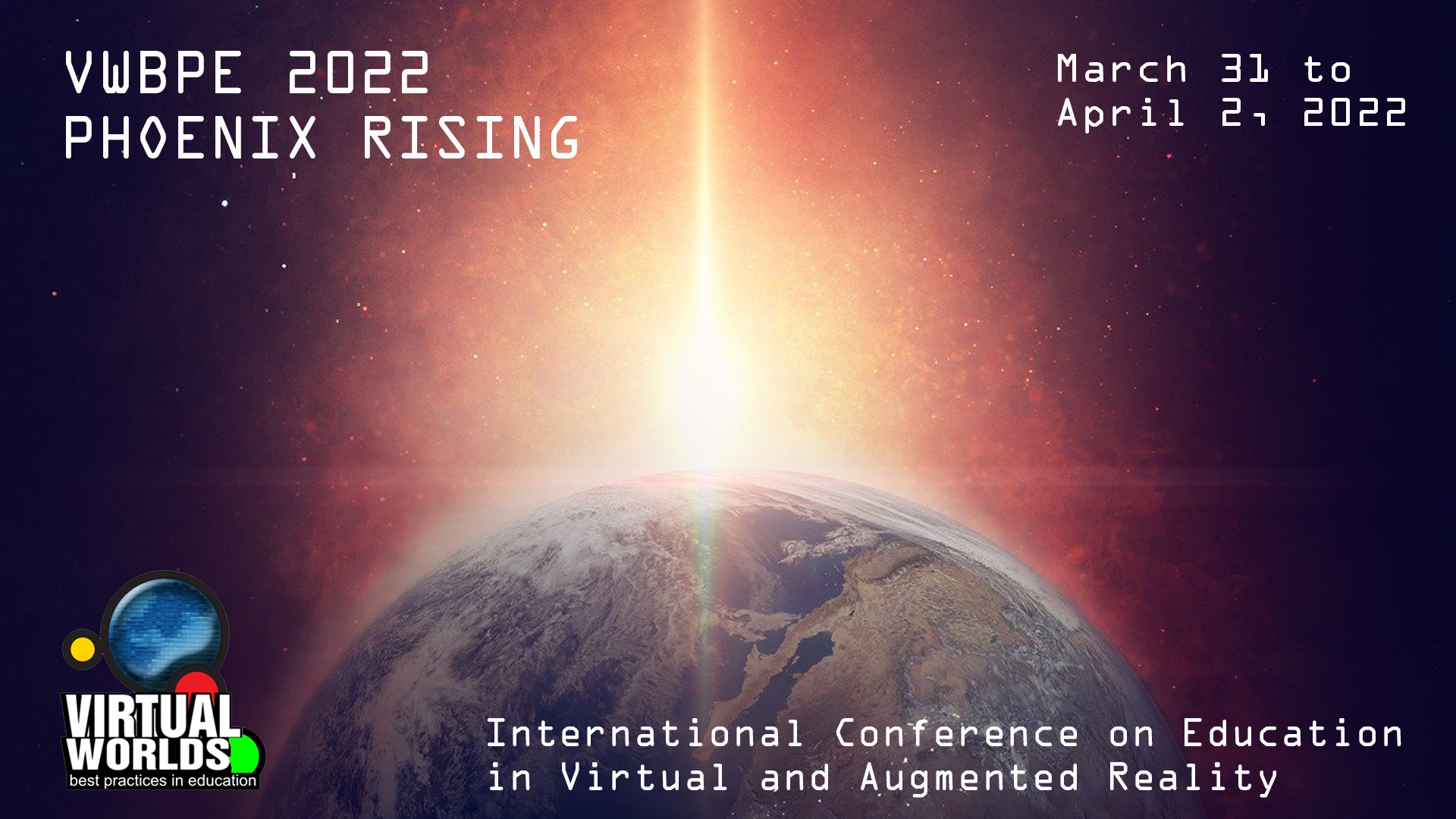
The 2022 Virtual Worlds Best Practice in Education (VWBPE) conference will be taking place between March 31st and April 2nd inclusive, and both a call for proposals and a call for volunteers to help run things has been issued.
VWBPE is a global grass-roots community event focusing on education in immersive virtual environments which attracts over 2,000 educational professionals from around the world each year, who participate in 150-200 online presentations including theoretical research, application of best practices, virtual world tours, hands-on workshops, discussion panels, machinima presentations, and poster exhibits. For the purposes of the conference, “virtual world” refers to any on-line community through which users can interact with one another and use and create ideas irrespective of time and space, whether 3D in presentation or as characterised through platforms such as Meta, LinkedIn, Twitter, etc., in which the direction of the platform’s evolution is manifest in the community. The conference itself is hosted within Second Life.
Volunteers are required for the following roles:
- Hosts: usually located at the Gateway landing area, but can also be at the Exhibits and Social Events to help participants, hosts are the first people that conference participants meet. and should be familiar with VWBPE areas in Second Life and VWBPE Conference events. A minimum time commitment: 1 hour training is required, with 1-hour blocks of time commitment (we appreciate multiple time sign ups, please do this at your convenience).
- Mentors: pre-conference coaches and one-on-one support people for presenters attending the conference (presenters are matched to mentors). Minimum time commitment: 1-hour training is required (this includes training in the presentation tolls in their assigned venues). Time per presenter varies from 1 to 3 hours, depending on the presenter’s experience level.
- Technical Support; experts in providing support across the conference and in liaising with Estate Managers when issues arise on the parcels. Minimum time commitment: 1 hour training prior to conference, 4-hour blocks.
- Quadrivium Assistants: assist Quadrivium Facilitators in leading a Quadrivium Discussion. Minimum time commitment: 1 hour + .5 hours (Quadrivium + Prep + Assistance with Report).
- Stream Team: provides video capture and streaming for each presentation at the conference. Members may need to be available for training up to 2 months prior to the conference.
Full details of all roles can be found on the VWBPE volunteers page; if additional information is required these can be relayed to the conference organisers via e-mail.
Those wishing to volunteer can do so via the VWBPE 2022 volunteers form.
Thinkerer Awards
The Thinkerer Award is presented annually to an individual whose deeds and actions have shown consistent selfless service towards the promotion of learning, community, and educational practices, and who exemplifies the spirit of cooperative development within immersive environments. It was first awarded in 2014 to Selby Evans (Thinkerer Melville) for whom it is named. Since then, the committee conducts the selection process based on public input. If you know someone who deserves to be recognized by this life-time award, please complete the 2022 nomination form below.
For further details, including nomination criteria, please refer to the VWBPE 2022 Thinkerer Award nomination page.
VWBPE Important Dates
- January:
- February:
- 14th -Submission close for Immersive Experiences Proposals and Exhibit Proposal Submissions close.
- 31 March – 02 April – VWBPE 2022 Conference



